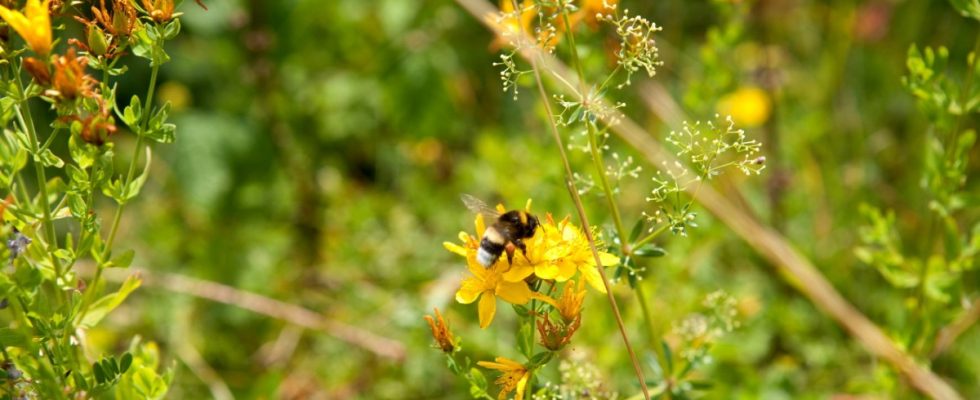Four years ago, when the state parliament not only took over the referendum “Biodiversity – Save the Bees”, but also saddled it up with many measures and goals according to the will of Prime Minister and CSU leader Markus Söder, environmental groups and experts agreed: Bavaria catapulted itself to the top of the federal states in nature conservation in one fell swoop. In the meantime, disillusionment has set in. “Bavaria is in the process of giving up its pioneering role,” said the leader of the Greens in the state parliament, Ludwig Hartmann, when he and the other initiators of the referendum presented a monitoring report on the implementation of the referendum on Friday. At the same time, the alliance, which includes the Greens, the ÖDP, the State Association for Bird Protection (LBV) and the Gregor-Louisoder-Umweltstiftung, called on the black-orange government coalition to return to an “honest implementation” of the referendum.
“The current campaign noise is poison for species protection in Bavaria,” said Agnes Becker, spokeswoman for the bee referendum and ÖDP politician. “The hope that the state government would have accepted the referendum because it finally understood that the biodiversity crisis was dramatic and that action was urgently needed was shattered.” As an example, Becker cited the passage in the CSU election program on agriculture: “For us, it doesn’t matter whether the production is organic or conventional.” From Becker’s point of view, the party has thus said goodbye to the goal of the referendum that 30 percent of agricultural land in Bavaria should be farmed organically by 2030. “Without the massive expansion of organic farming, the preservation of biodiversity is not possible,” said Becker.
The expansion of organic farming has actually only progressed very hesitantly of late. According to the monitoring report, the rate of increase was only 1.5 percent per year. For the 30 percent target, however, rates of at least 2.5 percent would be necessary. In order to boost the market for Bavarian organic food, Becker again called for an organic quota for state canteens, canteens and other large kitchens. “In Bavaria alone, 1.8 million meals are taken outside the home every day,” said the ÖDP politician. “A 30 percent organic quota in this area would be an immense boost for organic farmers and the organic industry as a whole.” Experts take a similar view, but the state government has so far not been able to bring itself to such a quota.
The Greens politician Hartmann criticized major shortcomings in the biotope network. After the referendum, the governing coalition committed to linking ten percent of open land in Bavaria to form a biotope network. “Although this goal is apparently achieved purely quantitatively,” said Hartmann. “But the Söder government has so far presented neither a map nor a plan of exactly what the association should look like.” Roman Lenz, the landscape planner and author of the monitoring report, is also convinced that simply adding up the areas that already exist is not enough to meet the goals of the referendum. The decisive factor is the “quality of the respective measures.”

